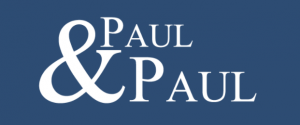How to Safeguard Your Brand Against Intellectual Property Theft
Business is at risk if you don't take precautions to protect your intellectual property. Large losses can occur if someone gets a hold of your data or info.
PHILADELPHIA, PA, UNITED STATES OF AMERICA, January 30, 2018 /EINPresswire.com/ --
How to Safeguard Your Brand Against Intellectual Property Theft
You will be surprised to know how easy it is to steal or copy information about your business. This is especially true if you have an online business.
Your logos, designs, content, trademarks, ideas and all that make up for intellectual property are at risk if you do not find ways to protect them. You can suffer huge financial losses if these are copied and used by someone else in the form of lost revenue and potential customers. Hence it is important to protect your intellectual property to safeguard your business.
Here is what you can do to keep your business safe from thieves and potential impostors:
Trademark: All your musical compilations, artistic works, designs, literature, images, and software which gives you that edge in your business and which makes you stand out from your competitors needs protection.
Most of your written material is covered by copyrights laws. But, the other components of your brand cannot be protected with this alone. The best way to protect these is to obtain a trademark for your brand name, design, logo, slogans or any words that are associated with your brand or business.
This will help you obtain and use a registered trademark symbol of ‘®’ with your assets. But, in order to register materials that are connected to your brand, you need to file an application with the US Patent and Trademark Office or USPTO. Unfortunately, the registration process is neither guaranteed nor is it automatic. It may take up to three months to have your application reviewed.
You need to comply with two important facts to ensure that your application is accepted. You need to make sure that your application clears the “likelihood of confusion” criteria. This means that the marks you are registering should have no similarity in appearance, sound, pronunciation or meaning to another; and the services that you provide and the goods that you manufacture are not similar to another company’s.
Hence it is important to make sure that your trademark is no way similar to another. Here is where an intellectual property attorney can be of help.
Linking your brand to a source: Most often it has been observed that generic brands and more easily replicated and thus are an easy target for people who want to take advantage of a brand name. Linking your brand to a source makes it difficult to copy. For example, if you want to sell coffee then you must come up with a name like “ fresh coffee from Colombia” or “coffee for the soul” if you want your brand of coffee to stand out and not easily stolen. Linking your brand to a source makes it unique and hence difficult to replicate.
Creating a policy: It is important that you protect yourself and your IP in writing. Including a clause that protects your intellectual property in the terms and conditions will give you a strong legal edge in case of future court cases.
The terms and conditions are a legal binding for your users. The intellectual property clause also states that the trademarks and all material are yours and it cannot be copied or used by any other person. An intellectual property lawyer can help you draft your terms and conditions.
Stay alert: Theft of any or part of your intellectual property can have negative implications for your brand. Hence, it's important that you stay vigilant and alert of your competitors. There is various software which can help you monitor any infringements with your brand or product. You should also make your employees, who have access to your IP sign non-compete and nondisclosure agreements.
Limiting access: Limiting access to your IP is another way of protecting it. You must limit the number of people who know about your trade secrets. Sensitive IP should be limited to only a few people. Having role-based access privileges also helps to keep your IP secure.
Access to the IP needs to be reviewed frequently and changed when employees are promoted, terminated, re-assigned or re-organized.
You have worked hard on bringing an idea to life. For some people, it’s their life’s work and means much more than just fame and money. If you need help with safeguarding your big idea, get in touch with Paul and Paul at 866-975-7231 to speak with an experienced attorney today!
-
-
-
-
-
-
+++++ Disclaimer+++++ This press release is considered advertising and does not constitute any client-attorney privilege and does not offer any advice or opinion on any legal matter. This release was drafted by Results Driven Marketing, LLC a digital marketing, Public Relations, advertising and content marketing firm located in Philadelphia, PA
Alex R. Sluzas, Esq.
Paul & Paul Intellectual Property Attorneys
2153938700
email us here
Legal Disclaimer:
EIN Presswire provides this news content "as is" without warranty of any kind. We do not accept any responsibility or liability for the accuracy, content, images, videos, licenses, completeness, legality, or reliability of the information contained in this article. If you have any complaints or copyright issues related to this article, kindly contact the author above.

